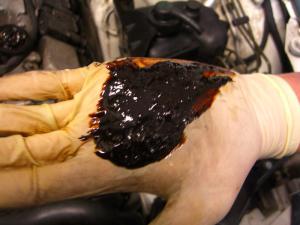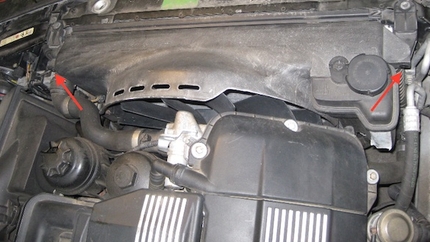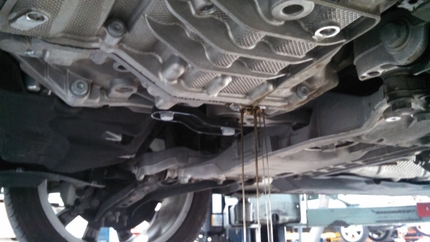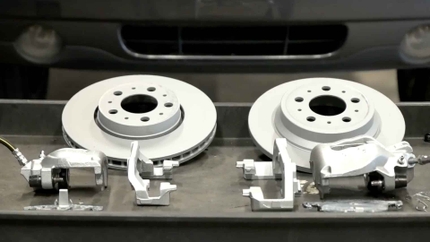If you have ever walked into a big box automotive parts retail store then you have likely noticed the walls and shelves dedicated to what I refer to as “automotive quick fixes”. The products for sale vary from stop leak to auto transmission slip additives. There is literally a “product” or “quick fix” for every problem your car could ever have. It seems like a miracle that you can pour a product into your engine, transmission, or radiator, and fix whatever problem it is you’re having.
I’m personally not a fan of many of these products. Some of them do work and I won’t discredit those that are proven to do the job and not cause further damage. However, many of these products are absolute crap and I wouldn’t touch them with a 10 foot pole, much less use it in my BMW 528i. Out of the hundreds of products that are available for sale, the one that bothers me the most are the engine flush products.
Engine flush products are designed to break up oil sludge. Oil sludge occurs when the oil oxidizes and turns into a sticky tar like substance. Engine sludge usually forms due to poor maintenance habits and oil that has endured prolonged exposure to high engine temperatures. Engine sludge is nasty and is essentially cancer for the internals of your engine. If you want to find out if your engine has a sludge problem, look no further than pulling off the valve cover. If the exposed cylinder head components are covered with a black tar like substance, you have oil sludge.

Engine flush additives are designed to do one thing: break up the sludge and flush it from your engine. If your engine has a sludge problem, this may sound like a tempting thing to do, but I really implore you not to. My dislike for oil sludge or engine flush additives is for their potential to do additional harm to your engine. Engine flush additives will without a doubt break up oil sludge, after all, that is what they're designed to do. However, you run the risk of clogging important oil passages in your engine with dislodged sludge which can then cause further engine damage or failure.
Some engine flush additives require you to idle your engine for prolonged periods of time. During this time the dislodged oil sludge works its way into the oil pan where it can be drained after the process is complete. However, oil sludge can also find its way into your oil filter where it can clog it up.
A clogged oil filter can easily cause a low oil pressure condition where severe engine damage can occur. Additionally, more modern engines that have variable valve timing components rely heavily on proper oil flow and pressure. The inside of a variable valve timing unit consists of tiny oil passages which need to be free of obstruction. If oil sludge were to block these passages, your vehicles variable valve timing system will not work properly, resulting in an expensive repair that could have been avoided.
There are no car manufacturers that I know of that recommend engine flushes. Some manufacturers even go as far as to specifically state that engine flushes should not be performed and doing so will void the engine warranty. There are many cases and examples where engine flushes have caused severe engine damage and failure. The engine is without a doubt the most expensive component of your vehicle and its one component that I am not willing to gamble with.
In my opinion engine flush additives and procedures are potentially dangerous to your engine and I would never personally recommend that they be used or performed. The procedure and product is designed to address an issue which should never exist. I have always been a big proponent of proper oil change intervals. In addition to proper oil change intervals, I also recommend the use of a quality engine oil to the proper specification for your engine. Quality engine oils have additive packages that help fight oil oxidation and prevent sludge problems.











